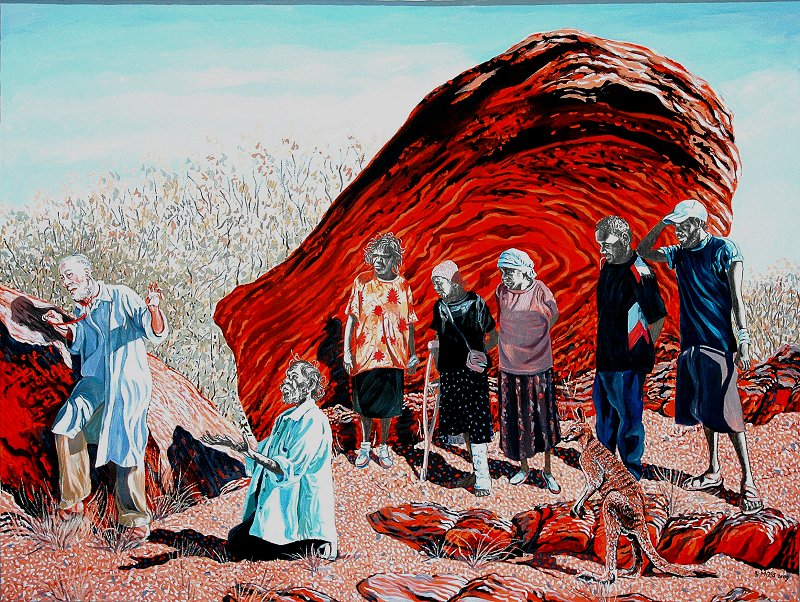In his last decade Dad and I drove every year to the Gippsland Lakes for a few days of sailing. Those lakes are plenished by rivers that flow down from the Great Dividing Range on their way to the sea. In the course of the drive of four hours we had time enough to evoke time remembered. Passing through the township of Trafalgar we’d sight the turnoff to Bruthen, a small town nestled high in those hills. Dad and I remembered Bruthen for our separate reasons, I for the Snowy River – mighty in verse, a miserable trickle in its reduced reality when I found it in 1968. Dad remembered Bruthen for the tooth.
‘I did a locum in Bruthen. It would have been 1935. I was a year or so out of medical school, wandering around the country, working in little towns – like you do, Howard.
I remember the drive up into the hills. I was driving a Sunderland. I remember that car for its unusual transmission: in those days manual transmission was all we had, but the Sunderland had something unique: you pre-selected a gear manually and it would change itself. Strange at first, unfamiliar, but just the thing as I wound up those hills and around those bends.’
Dad smiled as he remembered: ‘Bruthen was a one-doctor town. On my first day there a man came in with a toothache. His face was swollen and he pointed to his upper jaw on the right side. This was the 1930’s; we had no antibiotics the: the man needed a dentist. “Doc,” he said, “I’ve got a tooth for you to pull.”
(I pictured my Dad as I was at that stage – green, keen, torn between the need to be a proper locum tenens, literally, ‘holding the place’ of his absent Principal, while untrained for the task. Where I was timorous and trepid, Dad was fearless as an aspiring surgeon, aware of his solitary state – no colleague to consult, no training beyond seeking and accepting responsibility – and rising to the challenge. Dad would believe he could do the job and he must do so.)
Dad continued: ‘“I’m not a dentist. I can’t do that.”
“Why not, Doc? The regular doctor always pulls teeth.”
“I don’t have any instruments…”
“Yes you do, Doc. In the cupboard, up there.”
He pointed. Hoping he was incorrect I went to the cupboard. He was quite right. I found two pairs of steel dental forceps, half-familiar instruments, a bit sinister-looking.
“See, Doc? You use this pair for lower teeth, and this one for uppers. Mine’s an upper.”
The handles felt alright in my palm. Usable, not impossible…
“Doc, you know the trick to this tooth-pulling business? You have to push downwards to pull a lower tooth and you push upwards for an upper.”’
Dad said: ‘I didn’t know the trick.
The man pointed to the tooth. I applied the forceps, closed my palm, gripping the tooth hard, then I pushed up as the man advised. Nothing happened. I squeezed harder and pushed harder. A crunching sound then all resistance fell away. I looked down at the forceps: the tooth, a molar, sat beneath its roots, which were long and stout, like antlers on a stag.
“See, Doc? Nothing to it.”
The man fingered the cavity where his molar used to sit. He withdrew his finger, bloody and slippery with spit: “Wrong tooth, Doc. It’s this one.” He pointed again.
I said I was sorry: “You really need a dentist”, I said.
“No dentist in Bruthen, Doc. You do it.”
“Are you sure?”
“Yeah. You’re good at it. Go ahead.”
It was easier the second time. I looked down at the tooth feeling satisfied with myself.
“Good work, Doc!…but… it’s the wrong tooth.”
Feeling miserable I washed the forceps and placed them in the sterilizer.
The man said: ‘What are you doing, Doc? You haven’t finished.” He pointed to the next tooth along.
“Are you sure this is the one?”
He was sure.
I removed that tooth like its predecessors. Like its predecessors it too was the “wrong one.”
‘We continued, tooth following tooth, until I had cleared all the upper teeth on the right side. Then we agreed to call a halt.’

Good story. Clearly all were tougher back then both the doctor and the patient.
I recall a story on an ABC Oral History program of a dentist who newly graduated was sent to a Queensland country town in 1936. One of her first patients was a young woman with perfect teeth, coming to have them all removed as she was about to get married. The young woman said it would be saving for her husband if she had 2 sets of dentures. Apparently this was not uncommon then.
LikeLike
I first thought! what brave men! the second tooth I hadn’t recovered my horror of dentists! also the bravery of the Doc. and particularly the poor but tough patient? THEN by the third tooth my training as a police detective rang a bell…… Good story Doc. Dad! BUT I think it’s a FIB Howard!!! xxxxxx
LikeLike
I don’t blame you detective Bruce
But Dad didn’t tell fibs
Didn’t know how
My guess is the bloke had a toothache, didn’t like it, wiling to be toothfree to become pain free
Perhaps he joined in the thrill of the hunt
Perhaps he rejoiced in the growing skill of his dental apprentice.
And Dad?
I think he wanted to help,and with every passing tooth must have believed or hoped he’d make a cure
I guess he guessed by the end he had
Thanks for writing Brucie
Berg
LikeLike
Awful story!
L,
Margot Mann IBCLC RLC
Sent from my iPhone
>
LikeLike
Oh, good grief! What was that fellow up to, did he want all his teeth taken out?
LikeLike